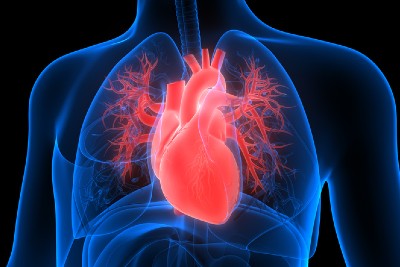Faculty of Health Sciences
-
 Breaking the cycle: supporting young boys in violent homes could prevent relationship violence, study suggests
1 May 2025
Young men growing up around parents who are physically violent to each other are 43% more likely to carry out violence or abuse in their own relationships, new University of Bristol research has found.
Breaking the cycle: supporting young boys in violent homes could prevent relationship violence, study suggests
1 May 2025
Young men growing up around parents who are physically violent to each other are 43% more likely to carry out violence or abuse in their own relationships, new University of Bristol research has found.
-
 Depression and other mental health conditions linked with immune response, study finds
30 April 2025
Depression, schizophrenia and other mental health conditions affect 1 in 4 people in their lifetime, but mechanisms underlying these conditions are poorly understood. New research led by researchers at the University of Bristol has linked the body’s immune response with schizophrenia, Alzheimer’s disease, depression, and bipolar disorder. The study demonstrates mental health conditions might be affected by the whole body as well as changes in the brain. The findings could pave the way for better treatments of some mental health conditions.
Depression and other mental health conditions linked with immune response, study finds
30 April 2025
Depression, schizophrenia and other mental health conditions affect 1 in 4 people in their lifetime, but mechanisms underlying these conditions are poorly understood. New research led by researchers at the University of Bristol has linked the body’s immune response with schizophrenia, Alzheimer’s disease, depression, and bipolar disorder. The study demonstrates mental health conditions might be affected by the whole body as well as changes in the brain. The findings could pave the way for better treatments of some mental health conditions.
-
 Road traffic accidents leading cause of pet cat deaths in the UK, Bristol Cats study finds
30 April 2025
Road traffic accidents (RTAs) are the leading cause of death among UK pet cats who are 8 years old or younger, new research has found. This is the first UK-wide study to assess mortality and survival rates in pet cats to include those that do not attend vets or have insurance. The study, by the University of Bristol Veterinary School and Cats Protection, is published in the Journal of Feline Medicine and Surgery.
Road traffic accidents leading cause of pet cat deaths in the UK, Bristol Cats study finds
30 April 2025
Road traffic accidents (RTAs) are the leading cause of death among UK pet cats who are 8 years old or younger, new research has found. This is the first UK-wide study to assess mortality and survival rates in pet cats to include those that do not attend vets or have insurance. The study, by the University of Bristol Veterinary School and Cats Protection, is published in the Journal of Feline Medicine and Surgery.
-
 New UK Centre hopes to change public attitudes towards grief
24 April 2025
Grief affects everyone but is still very much a taboo subject in the UK. A new Centre - the first of its kind in the UK - hopes to shift public attitudes towards grief and create communities that are compassionate and connected in their support of people who are bereaved. The Centre for Grief Research and Community Engagement (Grief Centre) at the University of Bristol is launched today [24 April].
New UK Centre hopes to change public attitudes towards grief
24 April 2025
Grief affects everyone but is still very much a taboo subject in the UK. A new Centre - the first of its kind in the UK - hopes to shift public attitudes towards grief and create communities that are compassionate and connected in their support of people who are bereaved. The Centre for Grief Research and Community Engagement (Grief Centre) at the University of Bristol is launched today [24 April].
-
 What research needs to be prioritised in global burns – results from a project spanning 88 countries
24 April 2025
Each year, more than 11 million people worldwide suffer serious life-changing burns, affecting both adults and children. The largest-ever project of its kind — the Priorities in Global Burns Research partnership, led by the University of Bristol — has identified the top 10 priorities in burns care research from 88 countries. The findings are published today [23 April] in The Lancet Global Health.
What research needs to be prioritised in global burns – results from a project spanning 88 countries
24 April 2025
Each year, more than 11 million people worldwide suffer serious life-changing burns, affecting both adults and children. The largest-ever project of its kind — the Priorities in Global Burns Research partnership, led by the University of Bristol — has identified the top 10 priorities in burns care research from 88 countries. The findings are published today [23 April] in The Lancet Global Health.
-
 Study looks at impact of COVID-19 pandemic on rates of congenital heart disease procedures among children
14 April 2025
Major reallocation of healthcare services during the COVID-19 pandemic meant that elective surgery in children with congenital heart disease (CHD) was significantly reduced, so that those needing urgent, lifesaving and emergency surgery could be treated. However, this prioritisation of the most severely ill children did not increase overall post-operative complications rates or death, a study led by the University of Bristol has shown.
Study looks at impact of COVID-19 pandemic on rates of congenital heart disease procedures among children
14 April 2025
Major reallocation of healthcare services during the COVID-19 pandemic meant that elective surgery in children with congenital heart disease (CHD) was significantly reduced, so that those needing urgent, lifesaving and emergency surgery could be treated. However, this prioritisation of the most severely ill children did not increase overall post-operative complications rates or death, a study led by the University of Bristol has shown.
-
 Study estimates proportion of adolescents living with overweight and obesity in England has increased by 50% between 2008 and 2023
12 April 2025
The proportion of adolescents living with overweight or obesity in England has increased by 50% from 2008-2010 (22%) to 2021-2023 (33%) according to two new studies involving University of Bristol researcher, Dr Dinesh Giri. The research is being presented at next month's [11-14 May] European Congress on Obesity (ECO).
Study estimates proportion of adolescents living with overweight and obesity in England has increased by 50% between 2008 and 2023
12 April 2025
The proportion of adolescents living with overweight or obesity in England has increased by 50% from 2008-2010 (22%) to 2021-2023 (33%) according to two new studies involving University of Bristol researcher, Dr Dinesh Giri. The research is being presented at next month's [11-14 May] European Congress on Obesity (ECO).
-
 Landmark study identifies new genetic cause of neurodevelopmental disorders, bringing long-awaited answers to families
10 April 2025
A new genetic cause of neurodevelopmental disorder (NDD) has been uncovered by an international team of researchers. The discovery, published in Nature Genetics [10 Apr] and led by the University of Bristol, the Icahn School of Medicine at Mount Sinai in New York and KU Leven in Belgium, offers diagnostic certainty and hope to potentially thousands of families worldwide who have long been searching for answers.
Landmark study identifies new genetic cause of neurodevelopmental disorders, bringing long-awaited answers to families
10 April 2025
A new genetic cause of neurodevelopmental disorder (NDD) has been uncovered by an international team of researchers. The discovery, published in Nature Genetics [10 Apr] and led by the University of Bristol, the Icahn School of Medicine at Mount Sinai in New York and KU Leven in Belgium, offers diagnostic certainty and hope to potentially thousands of families worldwide who have long been searching for answers.
-
 Study finds 'optimistic' medical detection dogs excel in tasks, while 'pessimistic' dogs shine in scent specificity
9 April 2025
A new study into medical detection dogs — which use their scent detection abilities to detect diseases or assist individuals with chronic health conditions — reveals that dogs displaying more "optimistic" responses in judgment bias tests tend to perform better overall in detection tasks. In contrast, "pessimistic" dogs exhibit greater scent detection specificity. The University of Bristol-led study, published in PLOS One, could offer valuable insights for improving the training, selection, and support of medical detection dogs.
Study finds 'optimistic' medical detection dogs excel in tasks, while 'pessimistic' dogs shine in scent specificity
9 April 2025
A new study into medical detection dogs — which use their scent detection abilities to detect diseases or assist individuals with chronic health conditions — reveals that dogs displaying more "optimistic" responses in judgment bias tests tend to perform better overall in detection tasks. In contrast, "pessimistic" dogs exhibit greater scent detection specificity. The University of Bristol-led study, published in PLOS One, could offer valuable insights for improving the training, selection, and support of medical detection dogs.
-
 Relaxation techniques may help lower high blood pressure—at least in the short term
8 April 2025
Relaxation techniques may help lower high blood pressure—at least in the short term—but the longer term effects are unclear, finds a pooled data analysis of the existing research. The study, led by the Universities of Bristol and Exeter and published in BMJ Medicine, is funded by the National Institute for Health and Care Research (NIHR).
Relaxation techniques may help lower high blood pressure—at least in the short term
8 April 2025
Relaxation techniques may help lower high blood pressure—at least in the short term—but the longer term effects are unclear, finds a pooled data analysis of the existing research. The study, led by the Universities of Bristol and Exeter and published in BMJ Medicine, is funded by the National Institute for Health and Care Research (NIHR).
Events 
View the events calendar for public events and lectures run by the University.